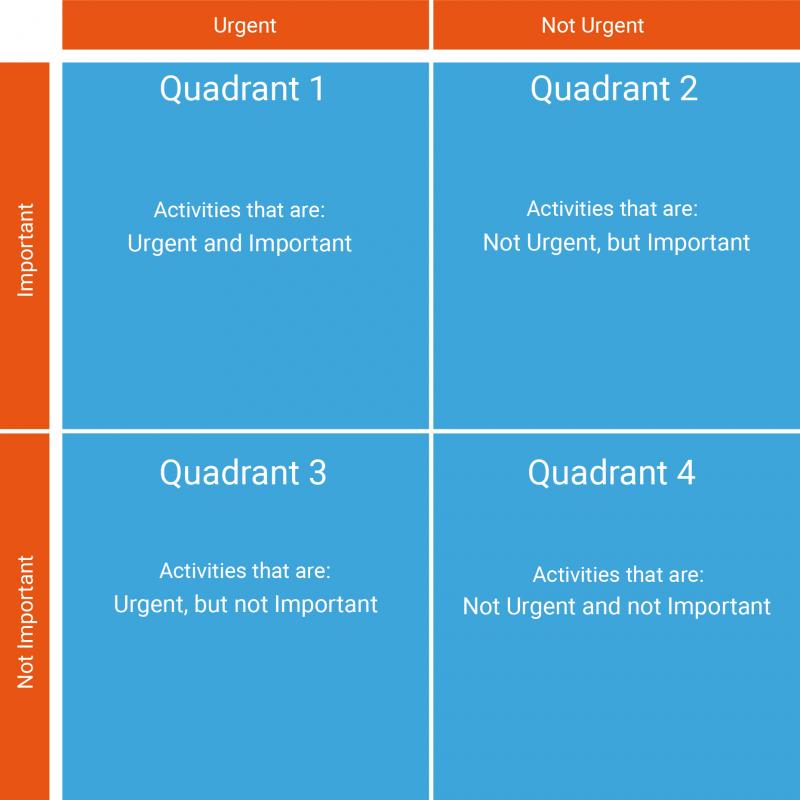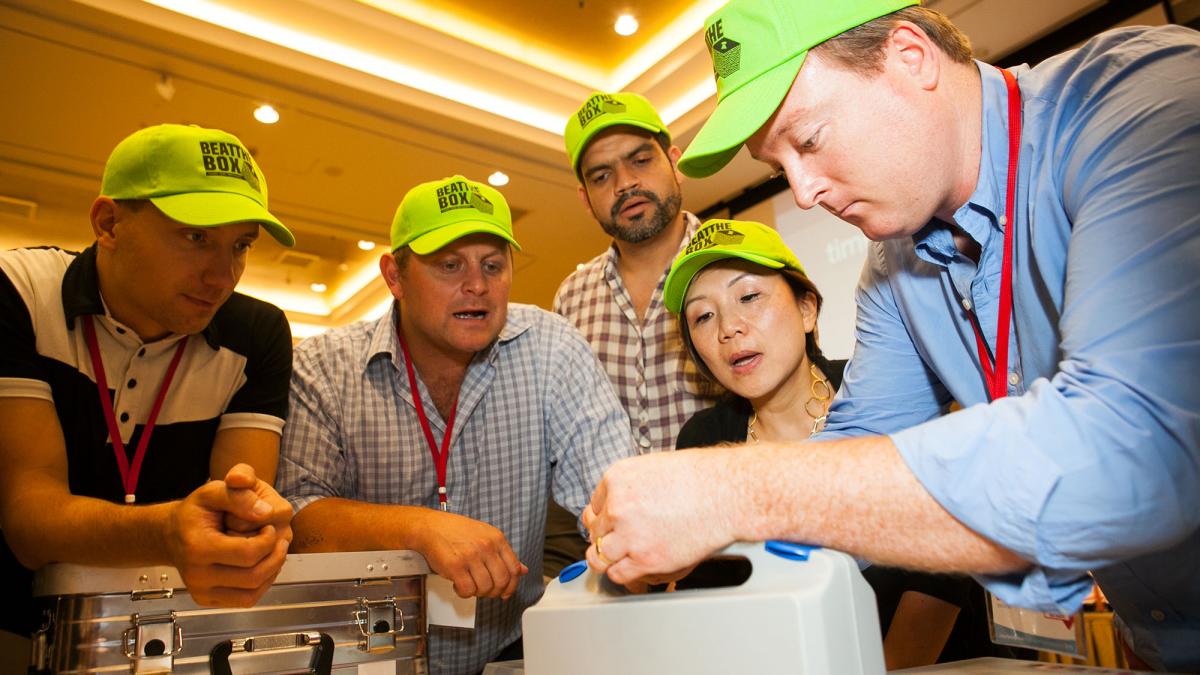Make real contact. How do you do that? And, just as important, why would you do this? First of all, nothing will change if you take no action. And if everything stays as it is now, are you happy? Second, people don't seek each other out so quickly after the two long years behind us. So if you don't take action now towards actual contact, people will not find each other automatically. Third: you want to keep people on board, especially in this tight labour market. Moreover, people who feel good about themselves also do their job better. When you have good contact with your employees, projects run better, and problems are quickly resolved when people feel connected to each other.
Smart Time Management
We can all recall meetings that seem to string along. Meetings where there is substantive discussion but as it's unstructured, it leads to ad hoc action. You may be familiar with bestselling author Stephen Covey's Time Management Matrix.

In essence, Covey's book is about managing time through prioritising based on levels of urgency and importance. He divides these into four quadrants. Quadrant 1, the necessary and urgent: extinguishing type of fires. Think of critical problems, complaints, projects with a deadline, solving crises and reports. Quite a few professionals find themselves too much in this quadrant, while ideally, you are working in quadrant 2; with non-urgent matters. Think of planning and preparation, prevention, relationship management, etc. Making this distinction is where success lies. Check out Google for more details on this concept.
Avoiding Conflict through Connection
In companies where a real connection is made through for example undertaking a targeted team activity, problems are solved before they arise. People go that extra mile for each other and are very proactive. And that's what you want after this long period of working from home, often alone and remotely. Want to find out more about how team programs can work positively in this manner? Get in touch.





